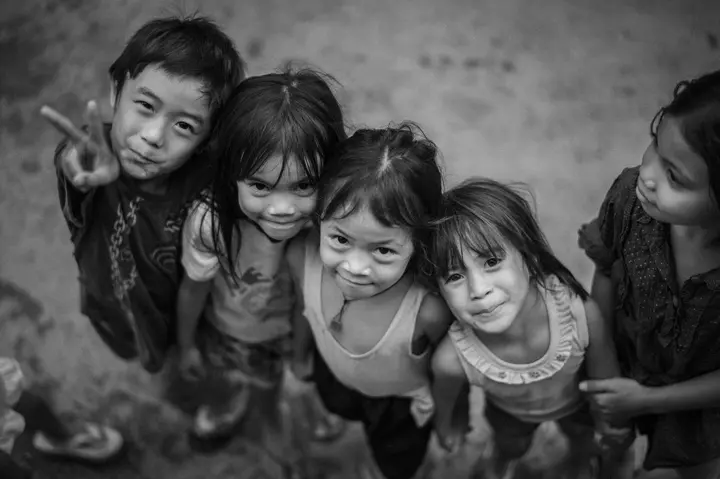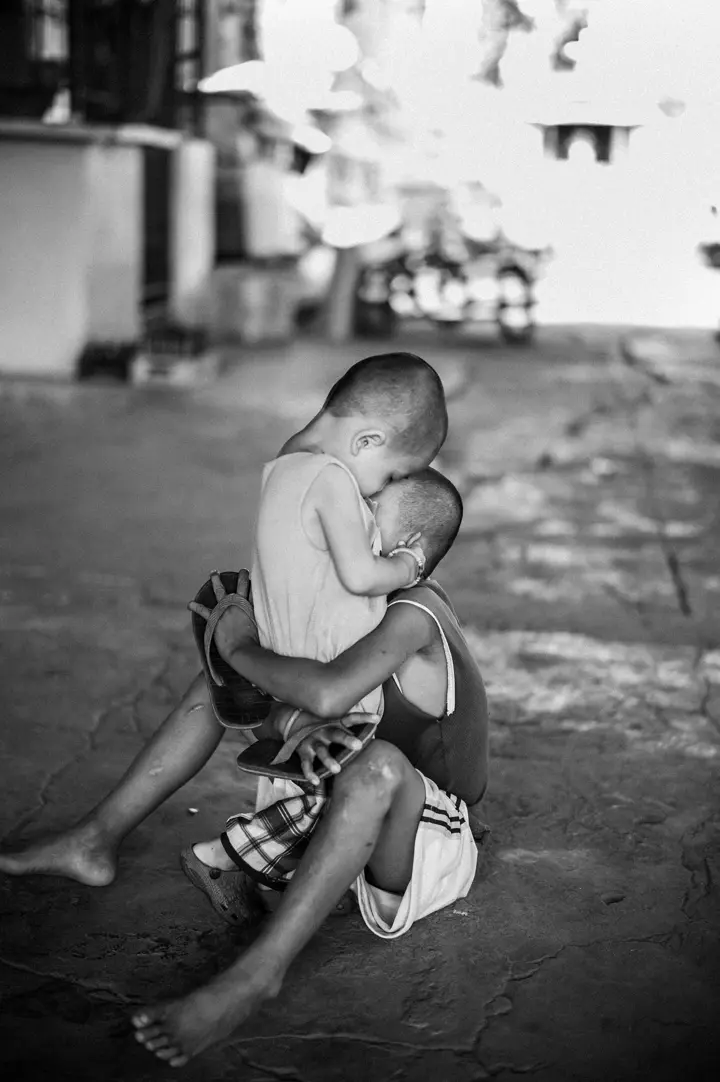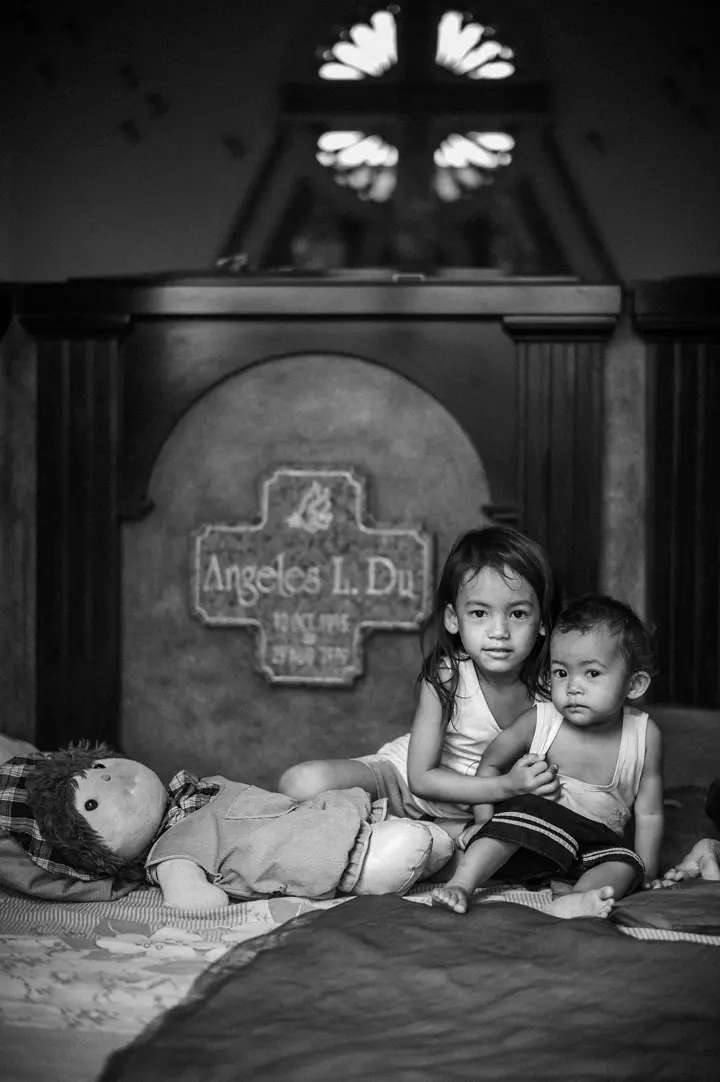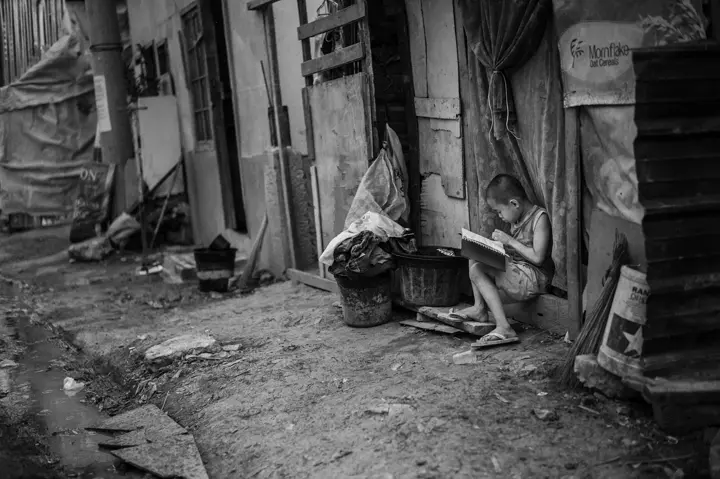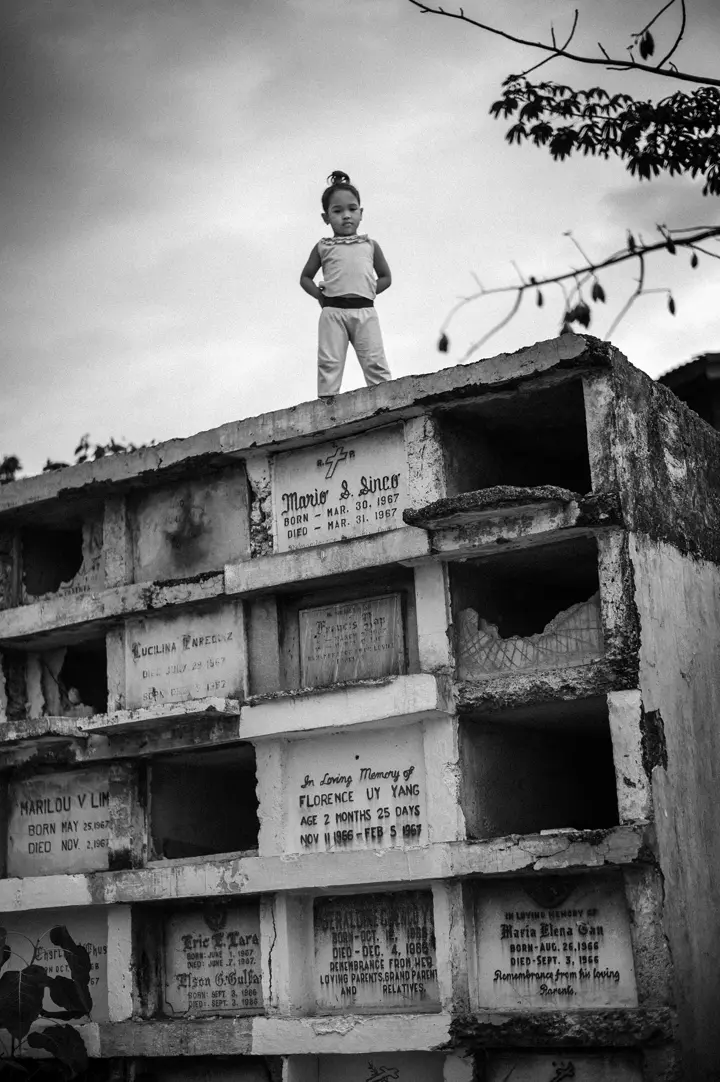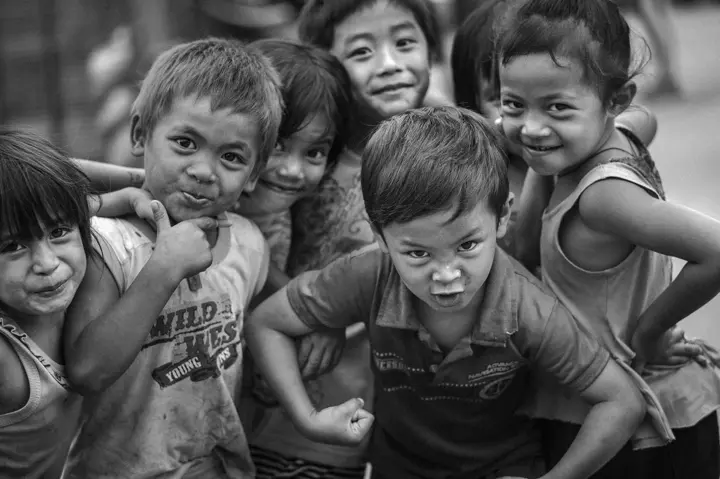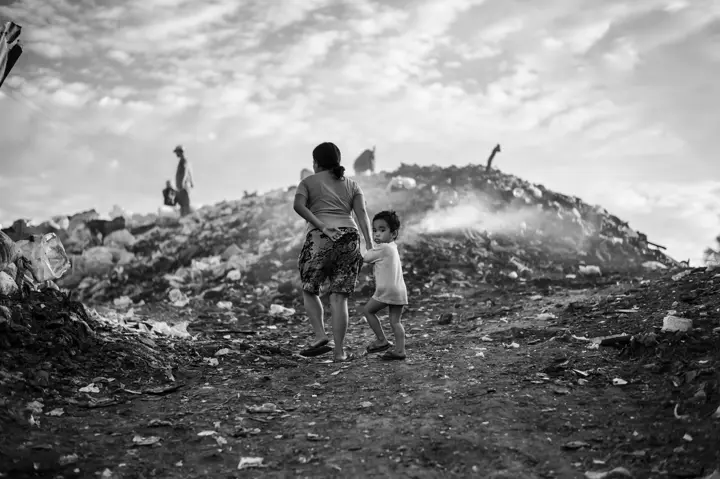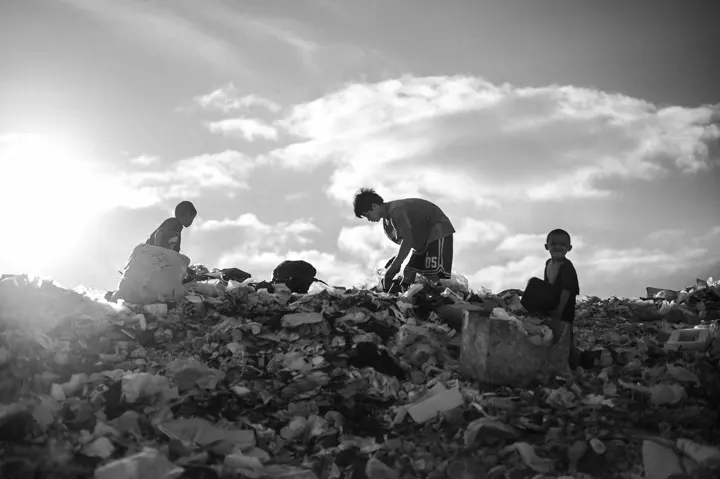Hope dies last - that's what they say. But is that really so? Can there be hope when children live on graveyards and have to sleep in graves? Can there be hope when young girls, barely eight years old, are abused by their uncle or grandfather? Can there be hope when children spend their days from early morning till late evening searching garbage dumps for something valuable, only to get a meal with luck at the end of the day? Can there be hope when a little girl in forced prostitution has already undergone two abortions? The answer - a clear YES - it is faith, love, and hope that drive the children. The hope for a better life and the pursuit of happiness motivate them and give them strength. Amidst all the chaos, poverty, and dark shadows, it is this hope and unwavering belief that can be seen in the eyes of the children and felt in their hearts. They persevere, they fight, they do not give up... and neither should we!
It was the thought of giving back something. After numerous advertising productions, fashion shoots, and portraits around the world, one has naturally experienced a lot and seen a lot... mostly just good things. I have met inspiring people, traveled to magical places, and experienced intense moments. The world has given me a lot, and now it was time to give back. But how, where, and most importantly, to whom? I therefore contacted ten German aid organizations and offered my support, and even more, I presented my vision of a pioneering project of social responsibility within photography. After numerous discussions, considerations, and comparing hard facts, my choice fell on the projects of the organization "Aktionsgruppe Kinder in Not e.V." in the Philippines. Terms like cemetery children, garbage dump children, child prostitution were the phrases that made me freeze and motivated me to start here.
The first step was taken, the project is established, but what next? Should I prepare physically with vaccinations, et cetera... or the much more important question, mentally? After all, one might think that one can expect a lot when hearing about children living on graveyards and garbage dumps. Of course, one informs oneself beforehand, reads reports, watches documentaries about it... but now, in hindsight, there was nothing that could actually prepare me for this journey.
When you find yourself in the midst of the swamp of garbage, rats, emaciated and sick dogs, and then in a small shack measuring just 2x2 meters, a little girl crying and surrounded by flies is standing in front of you... how can one prepare for that and how could one even presume that they could prepare for such a thing. And yet, I have a mission, and therefore I must function as who I am... the photographer, the supposed voyeur, who captures and records the immediate without interacting, without changing. And what should one even change, to tell a crying child "smile, here comes the bird"?... Nonsense! The moment was there, in its full and merciless harshness, unvarnished... so I aim and press the shutter button...
Biography
Born and raised in a small village in the Bavarian province, Alexander von Wiedenbeck began photography as an autodidact at the beginning of the 2000s within his then-founded and led advertising agency. However, his view for the essentials has always continued to evolve and change over time. An important turning point in this development was attending a lecture by photographer Peter Lindbergh in 2010, who philosophized about the past together with Jim Rakete and reviewed their shared experiences from the 80s and 90s. Alexander then discovered a photography outside the artificial and sometimes over-retouched world of advertising and decided on a path towards "real" photography, with a focus on telling unadulterated and authentic stories.
Another groundbreaking decision just a few years later was a return to a tool that demands the full attention of the photographer - a Leica M Monochrom. To this day, the photographer relies on this minimalist camera technology and even goes a step further, photographing again with an analog Leica M6 for several years and developing the photographs himself - another return to the essence of the medium and an homage to the great masters of photography from the past.
Leica Gallery Constance
Gerichtsgasse 14
78462 Constance
Germany
Saturday 9.30 a.m. - 2.00 p.m.
